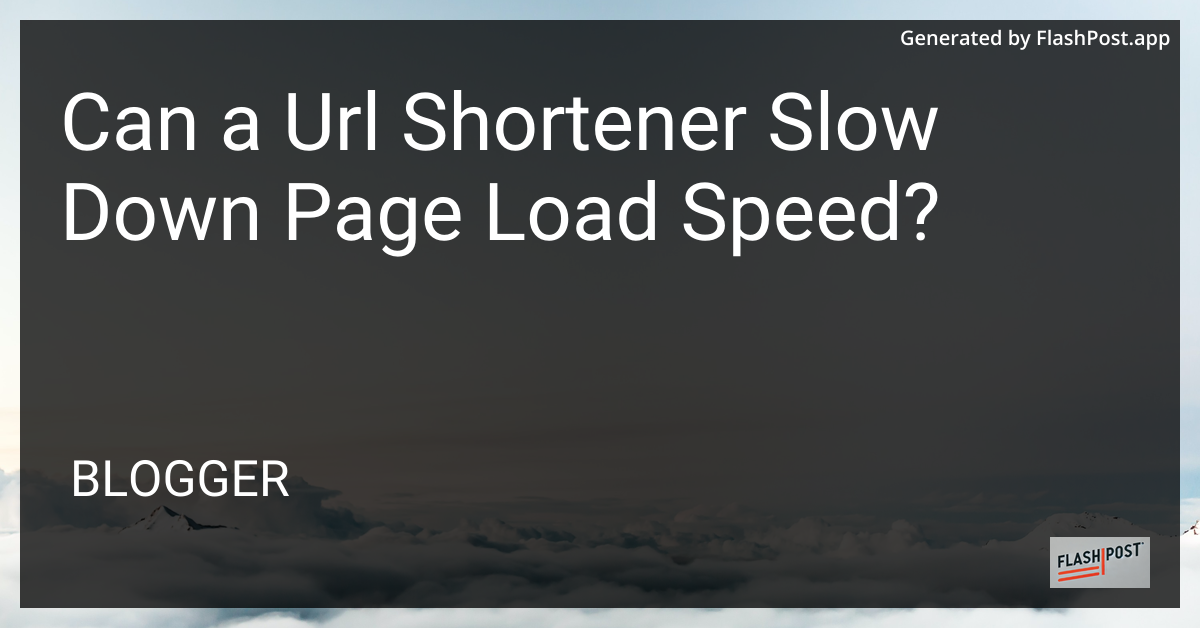Can a Url Shortener Slow Down Page Load Speed?

Can a URL Shortener Slow Down Page Load Speed?
In the world of digital marketing, URL shorteners have become a popular tool for making lengthy web addresses more manageable. But an important question arises: Can a URL shortener slow down page load speed?
URL shorteners serve a variety of purposes, from simplifying links for social media sharing to helping brands track engagement statistics. However, when it comes to performance, using a URL shortener can have implications for page load speed.
Understanding How URL Shorteners Work
A URL shortener takes a long URL and converts it into a shorter format, typically with a redirect to take users to the original link destination. This redirect process introduces additional steps in the hyperlink’s journey, which can influence loading times.
Factors Affecting Load Speed
Additional HTTP Request: Each redirection adds an extra HTTP request, increasing the time it takes for the browser to resolve the URL. While the delay might be negligible for high-speed broadband users, those on slower connections could notice a lag.
Server Speed: The performance of the URL shortening service’s server also plays a vital role. If the shortening service experiences downtime or slow server response, it can directly impact the overall load time. Choose services known as best URL shorteners to avoid disruptions.
Security Layers: Some shorteners include additional security checks, causing further delays. While these measures are crucial for preventing malicious redirects, they can slow down URL resolution.
Mitigating Load Speed Issues
Choose Reliable Shorteners: Opt for reputable shorteners like Tiny SRC with fast response times and minimal downtime.
Test Load Speeds: Regularly test the load speed of your shortened URLs to ensure they perform as expected. Tools like Google’s PageSpeed Insights can be helpful.
Limited Use: Use shorteners selectively for links that truly benefit from being concise, such as those used in marketing materials or platforms with character limits like Facebook.
Conclusion
While URL shorteners offer many practical advantages, they can also affect page load speeds under certain conditions. Understanding the factors that influence these speeds and selecting the right services will ensure that your links remain not only concise but also quick and efficient.
For marketers, balancing these factors can greatly improve user experience, leading to better engagement metrics. For tracking link engagement effectively, check out how to Track Clicks on a Shortened URL.
For those looking to further utilize URL shorteners beyond just shortening links, consider creating a Free QR Code for additional versatility in sharing your content.
In summary, while URL shorteners can impact speed, being informed and strategic in their usage can help mitigate these effects and enhance your digital strategy. “`
This Markdown article covers the potential impacts a URL shortener could have on page load speed, includes relevant internal and external links for further reading, and is tailored to be SEO-friendly.
Comments
Post a Comment